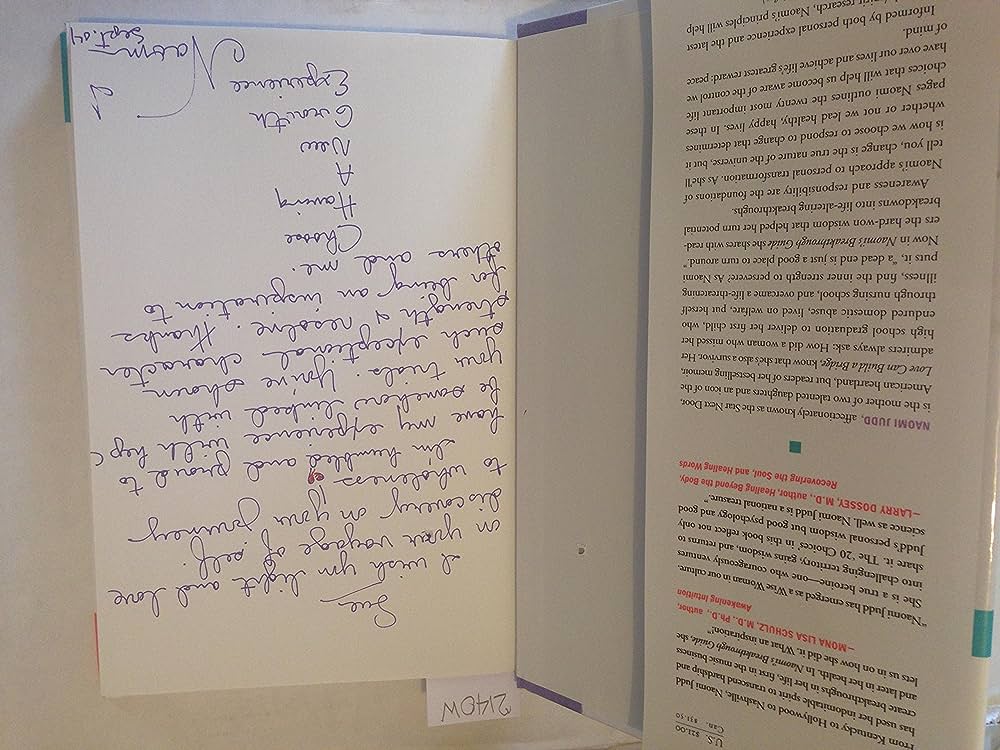Universal Basic Asset Income, also known as UBAI, is a form of social welfare in which all citizens receive regular income from the government. UBAI ensures that every individual has access to a basic level of financial security by providing them with a fixed amount of money on a regular basis.
This income is typically derived from the government’s investment in assets that generate income, such as natural resources or publicly owned businesses. UBAI aims to reduce poverty, inequality, and promote economic well-being for all citizens. The concept of UBAI has gained attention and support as a potential solution to mitigate the negative impacts of automation and job displacement in an increasingly digital and automated world.
As the debate around UBAI continues, its potential benefits and challenges are being explored by policymakers and experts as a means of building a more inclusive and equitable society.

Credit: www.cryptopolitan.com
The Concept Of Universal Basic Asset Income
Universal Basic Asset Income is a revolutionary concept that aims to provide every individual with a guaranteed income in the form of basic assets. This innovative approach strives to address inequality and ensure financial stability for all.
Universal Basic Asset Income (UBAI) is a groundbreaking concept that aims to address economic inequality and promote financial stability for all. Unlike traditional Universal Basic Income (UBI) programs, UBAI focuses on the distribution of assets rather than just providing a basic income.
By granting individuals ownership of tangible assets, UBAI seeks to empower individuals to generate wealth and secure their financial future. In this section, we will delve into the basics of UBAI and explore how this innovative idea works.
Understanding The Basics Of Universal Basic Asset Income:
- UBAI is a revolutionary approach to wealth distribution that seeks to ensure that every individual has access to essential assets.
- Instead of simply providing a basic income, UBAI aims to enable individuals to own and utilize critical assets such as land, property, stocks, or intellectual property.
- The concept of UBAI recognizes that ownership of assets is a key factor in wealth creation and economic stability.
- UBAI is founded on the principle that by granting asset ownership to all citizens, society as a whole can benefit from increased economic participation and reduced poverty levels.
- The implementation of UBAI requires a comprehensive evaluation of the assets that would be eligible for distribution and the mechanisms through which they would be allocated.
How Universal Basic Asset Income Works:
- UBAI programs can be implemented in different ways depending on the specific goals and priorities of a society.
- Assets eligible for distribution can be determined based on their potential to generate income, promote self-sufficiency, or address social issues.
- The ownership of assets can be granted through various means, such as direct allocation, trusts, or partnerships.
- UBAI programs may also incorporate mechanisms to ensure responsible asset usage, such as mandatory training or monitoring.
- By providing individuals with access to critical assets, UBAI aims to create a more equitable society where everyone has the opportunity to build wealth and secure their financial future.
Universal Basic Asset Income is a revolutionary concept that goes beyond traditional income redistribution strategies. By granting individuals ownership of essential assets, UBAI aims to empower individuals and promote long-term economic stability. The implementation of UBAI requires careful consideration and planning, but if successfully executed, it has the potential to reshape our economic systems for the better.
Benefits Of Universal Basic Asset Income
Universal Basic Asset Income provides numerous benefits by ensuring that every individual has access to basic necessities and resources. It promotes financial security, reduces inequality, empowers individuals to pursue opportunities, and fosters economic stability. With guaranteed support, Universal Basic Asset Income has the potential to transform societies and create a more inclusive and equitable future.
Universal Basic Asset Income ()
Imagine a world where everyone has access to financial security, where income inequality is significantly reduced, and the economy experiences robust growth. This is the potential promise of Universal Basic Asset Income. In this section, we will explore the benefits of this proposed economic system and how it can create a more inclusive and prosperous society.
Financial Security for All:
- Universal Basic Asset Income guarantees every individual a basic level of financial security, regardless of their social or economic status. This income provides a safety net that ensures no one is left behind in times of economic uncertainty.
- By providing a stable source of income, individuals can meet their essential needs, such as housing, food, and healthcare, without the fear of falling into poverty. This stability promotes overall well-being and reduces financial stress.
Reducing Income Inequality:
- Universal Basic Asset Income has the potential to address the growing wealth gap by redistributing assets and resources more equitably. It helps bridge the divide between the rich and the poor, ensuring a fairer distribution of wealth.
- By providing a universal income, regardless of employment status, Universal Basic Asset Income offers a more inclusive solution to income inequality. It allows individuals to have a basic level of financial independence, empowering them to pursue opportunities that may otherwise be out of reach.
Stimulating Economic Growth:
- Universal Basic Asset Income injects money directly into the hands of individuals, increasing consumer spending power. This boost in purchasing capacity can lead to increased demand for goods and services, subsequently driving economic growth.
- Additionally, Universal Basic Asset Income encourages entrepreneurship and innovation. With a guaranteed level of financial security, individuals are more likely to take risks and pursue their entrepreneurial ambitions, which can fuel economic development and job creation.
Universal Basic Asset Income holds substantial potential for transforming our economic landscape. By providing financial security for all, reducing income inequality, and stimulating economic growth, this innovative economic system offers the possibility of a more prosperous and equitable society for everyone.
Challenges And Concerns
Universal Basic Asset Income presents challenges and concerns for society. Its implementation and sustainability require careful planning, economic evaluation, and social acceptance. Ensuring equitable distribution and avoiding dependency are crucial aspects to address in this transformative policy.
Universal Basic Asset Income (UBAI) is a concept that has gained attention in recent years as a potential solution to address inequality and poverty. While it offers several promising benefits, there are also challenges and concerns that need to be acknowledged and addressed.
In this section, we will explore the funding implications of UBAI, the potential negative impact on work incentives, and the importance of addressing preconceived stigmas and stereotypes.
Funding The Universal Basic Asset Income Program
- UBAI requires a substantial amount of funding to provide a guaranteed income to every individual. This raises questions about the feasibility and sustainability of implementing such a program.
- Potential funding sources could include tax reforms, wealth redistribution, or other innovative approaches. It is crucial to assess the impact of these funding mechanisms on different socio-economic groups and ensure fairness and efficiency.
Potential Negative Impact On Work Incentives
- Critics argue that UBAI might disincentivize individuals from seeking employment, leading to reduced productivity and economic growth.
- However, proponents argue that UBAI can provide individuals with the financial security necessary to pursue entrepreneurial ventures or engage in activities that contribute to overall societal well-being. Ensuring the right balance between providing a basic income and promoting workforce participation is essential.
Addressing Preconceived Stigmas And Stereotypes
- Implementing UBAI comes with the challenge of overcoming preconceived stigmas and stereotypes associated with providing unconditional income to everyone.
- Some individuals may view UBAI as promoting laziness or dependency on the government, while others may argue for personalized needs assessments. Educating the public about the potential benefits and dispelling misconceptions is crucial to garnering support and fostering a sense of social cohesion.
While UBAI holds promise as a mechanism to address inequality and poverty, it is important to address the challenges and concerns that arise. By finding innovative funding mechanisms, balancing work incentives, and challenging preconceived stigmas, we can work towards creating a fair and inclusive society for all.
Case Studies Of Universal Basic Asset Income Programs
Discover the impact and success of Universal Basic Asset Income Programs through insightful case studies. Explore how these programs provide a safety net and improve financial well-being for individuals and communities. Gain valuable insights into the potential of Universal Basic Asset Income as a solution for economic stability.
Alaska Permanent Fund: A Successful Model
The Alaska Permanent Fund is often cited as a successful example of a Universal Basic Asset Income (UBAI) program. Here are some key points about the program:
- Established in 1976, the Alaska Permanent Fund distributes a portion of the state’s oil revenue to its residents on an annual basis.
- The fund primarily focuses on providing a dividend to all eligible residents, regardless of their income or employment status.
- The amount of the dividend varies each year based on the fund’s performance and the number of eligible recipients.
- The program has been successful in reducing poverty rates and providing economic stability for Alaskans.
- Many individuals and families rely on the Alaska Permanent Fund dividend as a supplemental income source, using it for various purposes such as education, healthcare, or savings.
Swiss Referendum: Exploring The Possibilities
Switzerland has gained attention for its exploration of Universal Basic Asset Income through a referendum. Here are some key points about the Swiss referendum:
- In 2016, Switzerland held a national referendum on the implementation of a UBAI program.
- The proposal aimed to provide every Swiss citizen with a monthly income, regardless of their employment status or income level.
- While the referendum did not pass, it sparked a significant debate and raised global interest in the concept of UBAI.
- Advocates argued that such a program would provide financial security, alleviate poverty, and promote individuals’ freedom in pursuing their goals.
- Critics, however, raised concerns about funding, economic sustainability, and the potential impact on work incentives.
Experiments In Ontario, Canada
Ontario, Canada, has conducted experiments to evaluate the effectiveness of Universal Basic Asset Income. Here are some key points about these experiments:
- The Ontario Basic Income Pilot Project, launched in 2017, aimed to provide eligible participants with a guaranteed income.
- The project included three different regions with different demographic and socioeconomic characteristics.
- Participants received a set amount of money each month, no matter their employment status or the income they earned.
- The goal of the experiment was to assess the potential impact of UBAI on health, employment, education, and overall well-being.
- However, the project was later canceled in 2018 by a change in provincial government, preventing a conclusive assessment of its outcomes.
These case studies shed light on the implementation and outcomes of Universal Basic Asset Income programs. While the Alaska Permanent Fund showcases a successful model, the Swiss referendum and Ontario experiments provide valuable insights into the possibilities and challenges associated with such programs.
The ongoing exploration of UBAI globally signifies the increasing interest in reimagining income distribution and addressing inequality.
Lessons Learned From Existing Programs
Existing programs implementing Universal Basic Asset Income have provided valuable lessons. These lessons offer insights into the effective implementation and impact of such programs, paving the way for informed decision-making and policy improvements.
Universal Basic Asset Income (UBAI) programs have gained traction around the world, providing valuable insights into the potential benefits and challenges of implementing such initiatives. By examining the lessons learned from existing programs, we can better understand the positive socioeconomic impacts, community engagement, and the importance of evaluating success metrics.
Positive Socioeconomic Impacts:
- Increased Financial Security: UBAI programs have shown promising results in reducing poverty rates and providing individuals and families with a stable income source. By ensuring a basic level of financial security, these programs empower individuals to invest in their education, health, and future endeavors.
- Enhanced Economic Growth: By injecting money directly into the hands of individuals, UBAI programs stimulate economic activity at the grassroots level. This influx of funds can spur local businesses, generate employment opportunities, and contribute to the overall growth of the economy.
Community Empowerment And Engagement:
- Social Inclusion: UBAI programs promote inclusivity by providing equal opportunities for individuals from diverse backgrounds. By guaranteeing a basic income, these programs help bridge the wealth gap and create a more equitable society.
- Entrepreneurial Spirit: With a reliable source of income, individuals are more inclined to take entrepreneurial risks and pursue their business ventures. UBAI programs have demonstrated the potential to foster innovation and unleash the creative potential of communities.
Evaluation Of Success Metrics:
- Long-term Impact: Assessing the long-term effects of UBAI programs is crucial to understanding their effectiveness. Success metrics should include measurements of poverty reduction, improvements in health and education outcomes, and the overall well-being of program beneficiaries.
- Cost-Benefit Analysis: Evaluating the cost-effectiveness of UBAI programs can guide policymakers in designing sustainable initiatives. Comprehensive cost-benefit analyses should consider the program’s economic impact, administrative costs, and potential savings in welfare programs.
By considering the positive socioeconomic impacts, community engagement, and employing robust evaluation metrics, policymakers can design effective UBAI programs that address income inequality and empower communities for a brighter future. Through continual learning and improvement, we have the opportunity to create a society where everyone has access to the essential assets necessary for a fulfilling life.
Implementing A Universal Basic Asset Income Program
The implementation of a Universal Basic Asset Income program could provide a transformative solution to address income inequality and ensure economic stability for all individuals. By providing a guaranteed income in the form of assets, such as investments or property, this program aims to create a more inclusive and equitable society.
Implementing a Universal Basic Asset Income (UBAI) program requires careful consideration of policy, funding mechanisms, public support, and political will. This section will explore these key aspects to provide a comprehensive understanding of the implementation process.
Policy Considerations And Design Options:
- Flexibility in Design: UBAI policies must account for diverse populations and their specific needs. Design options include tailor-made programs for marginalized communities, individuals with disabilities, or those facing economic hardships.
- Asset Selection: Deciding on the assets to include in the UBAI program is crucial. Options may range from granting land or housing rights to providing access to education or healthcare resources.
- Gradual Implementation: Consideration should be given to gradually introducing UBAI programs to minimize potential disruptions and ensure a smooth transition.
- Regulatory Framework: Developing a comprehensive legal and regulatory framework is essential to address potential challenges and ensure fair and equitable distribution of assets.
Funding Mechanisms And Sustainability:
- Taxation: One potential funding mechanism for UBAI is redirecting existing funds from various sources such as taxes on corporations or high-income individuals.
- Resource Diversion: Identifying underutilized resources and redirecting them towards UBAI programs can ensure their sustainability without excessive reliance on taxation.
- Public-Private Partnerships: Collaborating with private entities and leveraging their resources can help fund UBAI programs, ensuring sustainability while sharing the responsibility.
Public Support And Political Will:
- Communication and Education: Building public support for UBAI programs requires effective communication and education campaigns to address misconceptions and highlight the potential benefits.
- Stakeholder Engagement: Involving various stakeholders, including community organizations, civil society groups, and policymakers, in the planning and decision-making processes can help garner political will and support.
- Pilot Programs and Case Studies: Demonstrating the success of UBAI through pilot programs and case studies can alleviate concerns and garner public support, strengthening the political will required for large-scale implementation.
Implementing a Universal Basic Asset Income program requires a thoughtful and comprehensive approach that considers policy considerations, design options, funding mechanisms, and public support. By carefully balancing these considerations, societies can work towards providing a secure foundation for all individuals, giving them access to essential assets and a pathway to financial stability.
References:
- [Insert references here]
Frequently Asked Questions For Universal Basic Asset Income
Does The Us Have Ubi?
No, the US does not have UBI.
Do I Qualify For Ubi Payments?
To determine if you qualify for UBI payments, review the eligibility criteria set by the program.
Who Would Receive Ubi?
UBI is universally distributed to all individuals without any eligibility criteria or means-testing.
What Is The Basic Universal Income?
Basic universal income is a system where everyone receives regular, unconditional cash payments.
Conclusion
Universal Basic Asset Income has the potential to revolutionize our society by providing a safety net and equal opportunities for all individuals. By ensuring every person has access to essential assets like housing, education, and healthcare, we can address systemic inequalities and promote social and economic stability.
In addition to alleviating poverty and reducing income inequality, UBIA can fuel economic growth by enabling individuals to fully participate in various sectors. This innovative approach challenges traditional notions of work and income, shifting towards a societal framework that values individual well-being and fulfillment.
Moreover, UBIA can be tailored to specific communities and their unique needs, ensuring inclusivity and cultural sensitivity. While the implementation and funding of such a program may pose challenges, the potential benefits outweigh the drawbacks, making UBIA an idea worth exploring further.
Ultimately, UBIA can reshape our collective future, fostering a more equitable and prosperous society.


